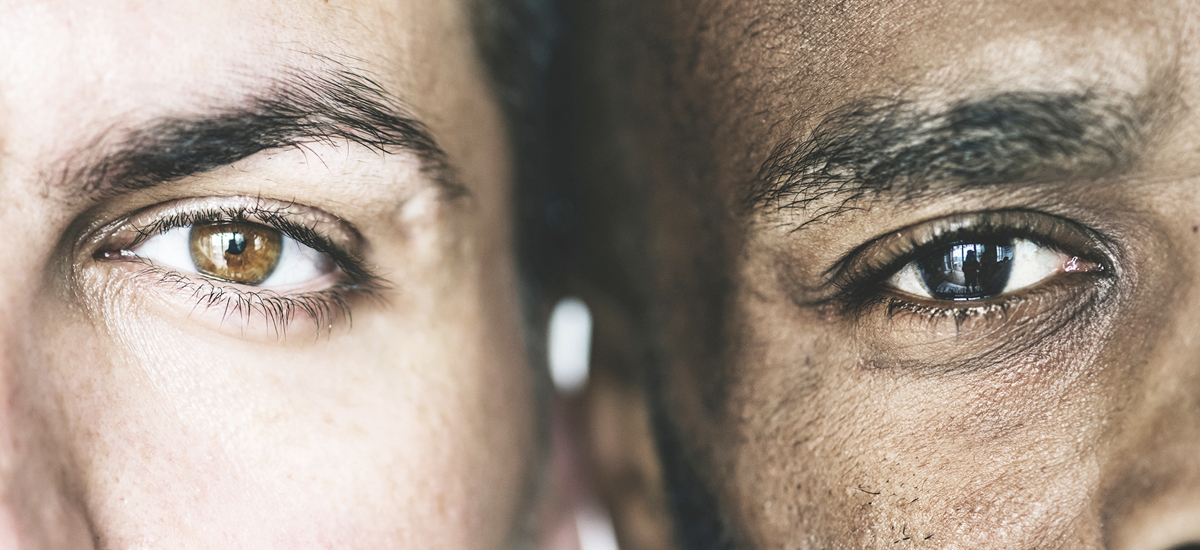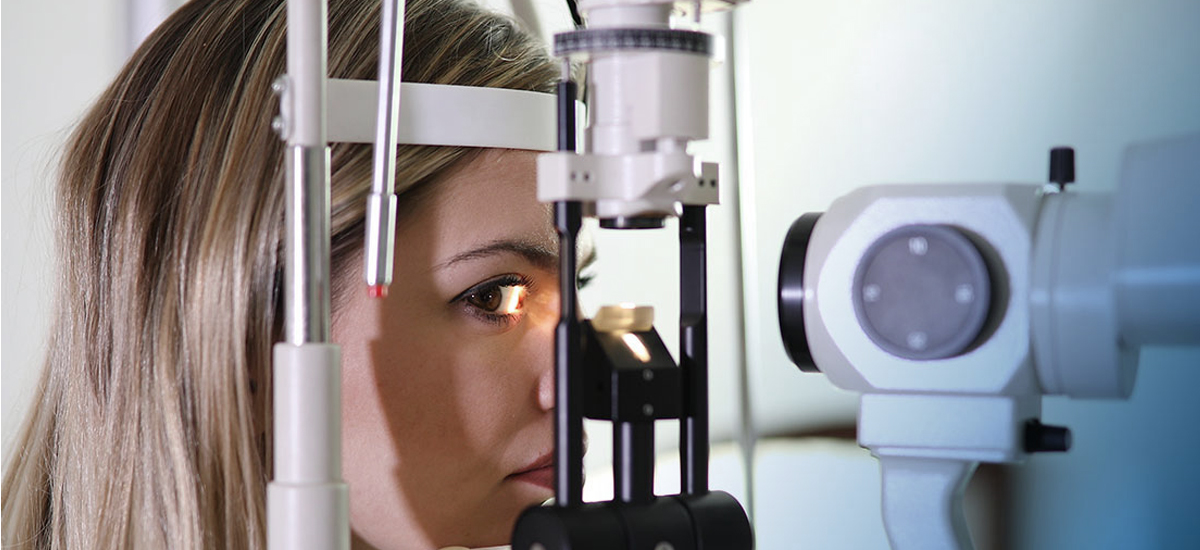Eye Health
-
What Are the Signs and Symptoms of Photokeratitis?
 Did you know that enough exposure to the sun’s UV rays can impair more than your skin? It can also impact your eyes. According to the American Optometric Association (AOA), UVA and UVB light may have the most repercussions for your eye health and vision.
For instance, being around high levels of these types of UV light without the right
Read more...
Did you know that enough exposure to the sun’s UV rays can impair more than your skin? It can also impact your eyes. According to the American Optometric Association (AOA), UVA and UVB light may have the most repercussions for your eye health and vision.
For instance, being around high levels of these types of UV light without the right
Read more...
-
Are Fruits Good for Your Eyes?
 It’s almost time to grab your reusable grocery bags and head to the farmer’s market. The warm season is right around the corner. What does that mean? Plenty of locally grown, fresh fruits at your fingertips.
The good news? Fruits are good for your eyes--even great for your eyes. Let’s examine some of the top fruits for eye health to
Read more...
It’s almost time to grab your reusable grocery bags and head to the farmer’s market. The warm season is right around the corner. What does that mean? Plenty of locally grown, fresh fruits at your fingertips.
The good news? Fruits are good for your eyes--even great for your eyes. Let’s examine some of the top fruits for eye health to
Read more...
-
3 Worst Foods for Eye Health

There is no single food that can guarantee you to have great eyesight, but there are plenty that can contribute to your eye health. For nutrition, we suggest consuming plenty of healthy, whole foods, such as berries, meat, and sweet potatoes.
Some of the worst foods for eye health are processed foods that are abundant in sodium, sugar, and unhealthy fats. Instead of eating out every day, try prepping healthy alternatives at home to bring with you to work. Store them in the refrigerator in the break room, and take them out for healthy, delicious lunches or snacks when you need them.
Read more... -
What Eye Insurance Companies Does For Eyes Accept?
 At For Eyes, we believe that everyone deserves high-quality eye care without spending an arm and a leg. And one of the many benefits of vision care is that you can save even more money on your eye care.
For over 50 years, we have provided eye care services to adults and kids in the U.S. and Puerto Rico, serving more than 110 optical centers. We
Read more...
At For Eyes, we believe that everyone deserves high-quality eye care without spending an arm and a leg. And one of the many benefits of vision care is that you can save even more money on your eye care.
For over 50 years, we have provided eye care services to adults and kids in the U.S. and Puerto Rico, serving more than 110 optical centers. We
Read more...
-
What Causes Blindness at Birth?
 People of all ages can endure issues with their eyesight, even infants. From obstacles during pregnancy to developmental problems, the reasons behind vision loss in babies can vary.
To find out more about what causes blindness at birth, keep reading. For Eyes is here to help.
What causes blindness at birth?
Like other age groups,
Read more...
People of all ages can endure issues with their eyesight, even infants. From obstacles during pregnancy to developmental problems, the reasons behind vision loss in babies can vary.
To find out more about what causes blindness at birth, keep reading. For Eyes is here to help.
What causes blindness at birth?
Like other age groups,
Read more...
-
Is Astigmatism a Refractive Error?
 You may have heard about astigmatism before, but how much do you really know about it? Most people have questions about the symptoms of astigmatism or how it can be treated. Others wish to know, ‘Is astigmatism a refractive error?’
A refractive error indicates that your eye shape or size deters proper light manipulation, which can lead to
Read more...
You may have heard about astigmatism before, but how much do you really know about it? Most people have questions about the symptoms of astigmatism or how it can be treated. Others wish to know, ‘Is astigmatism a refractive error?’
A refractive error indicates that your eye shape or size deters proper light manipulation, which can lead to
Read more...
-
4 Eye Diseases That Cause Blindness
 Sudden blindness is a huge concern for many people, as are eye diseases that cause blindness over time. Regular comprehensive eye exams with your optometrist are crucial to pinpoint these conditions and to monitor their progression. That will ensure your eyes get the treatment they need at a fast timeline.
So, what are the most common eye
Read more...
Sudden blindness is a huge concern for many people, as are eye diseases that cause blindness over time. Regular comprehensive eye exams with your optometrist are crucial to pinpoint these conditions and to monitor their progression. That will ensure your eyes get the treatment they need at a fast timeline.
So, what are the most common eye
Read more...
-
What Is Blindness?
 Here at For Eyes, our Independent Doctors of Optometry use their expertise to diagnose patients for a wide range of eye issues, including blindness. If you ever have a concern with your vision, you can count on our team to give you the best solutions at an affordable cost.
Whether your vision seems to be gone in one or both eyes, we can help. Our
Read more...
Here at For Eyes, our Independent Doctors of Optometry use their expertise to diagnose patients for a wide range of eye issues, including blindness. If you ever have a concern with your vision, you can count on our team to give you the best solutions at an affordable cost.
Whether your vision seems to be gone in one or both eyes, we can help. Our
Read more...
-
Is Cataract Prevention Possible?
 Average eye lenses are transparent. If they ever get foggy or discolored, that’s a sign that you may have cataracts, an eye disease that can impact your eyesight over time.
Over 24.4 million people in the U.S. above 40 have cataracts, with a large portion of the remaining population expected to get them before age 75. There are three
Read more...
Average eye lenses are transparent. If they ever get foggy or discolored, that’s a sign that you may have cataracts, an eye disease that can impact your eyesight over time.
Over 24.4 million people in the U.S. above 40 have cataracts, with a large portion of the remaining population expected to get them before age 75. There are three
Read more...
-
Nearsighted vs. Farsighted: What Is the Difference?
 Do you ever encounter issues seeing at certain distances? The chances are that you have hyperopia (farsightedness) or myopia (nearsightedness). These conditions are refractive errors defined by your eyes’ incapability of transferring light to the retina, making your vision fuzzy nearby or far away.
So what does it mean to be nearsighted vs.
Read more...
Do you ever encounter issues seeing at certain distances? The chances are that you have hyperopia (farsightedness) or myopia (nearsightedness). These conditions are refractive errors defined by your eyes’ incapability of transferring light to the retina, making your vision fuzzy nearby or far away.
So what does it mean to be nearsighted vs.
Read more...







